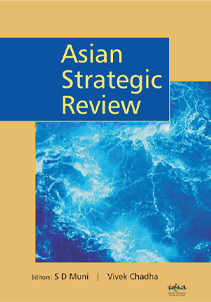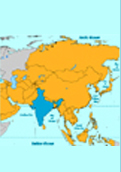Asian Strategic Review 2013
- Publisher: Pentagon Press
It would not be a cliche to describe the strategic contours of Asia as being at the crossroads of history. A number of significant events are influencing the likely course that the collective destiny of the region could possibly take in the future. Some of the key issues and trends have been analysed in this year’s Asian Strategic Review
- ISBN ISBN 978-81-8274-719-7,
- Price: ₹ 1295/-
- E-copy available










